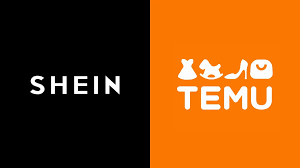Courtney Kaplan
A long-running investigation, which is still ongoing, has yielded insights into a massive healthcare fraud at a local South African hospital.
Background
On 23 August 2021, Babita Deokaran, a whistleblower and acting Chief Director of Financial Accounting in the Gauteng Department of Health, was assassinated after exposing around R850 million worth of suspicious procurement payments at Tembisa Hospital. In July 2025, the SIU confirmed that it was finalising the investigation into the assassination.
On 1 September 2023, Proclamation No. 136 of 2023 (the “Proclamation”), was published in the Government Gazette, which gives the Special Investigating Unit (“SIU”) power to investigate accusations of corruption and maladministration regarding Tembisa Hospital and the Gauteng Department of Health. The Proclamation was signed under the Special Investigating Units and Special Tribunals Act 74 of 1996 (“SIU Act”).
In terms of the Proclamation, the SIU is authorised to:
- Investigate procurement, which is not fair, competitive, transparent, equitable, or cost-effective, or which is prohibited by National Treasury guidelines;
- Investigate unauthorised, irregular, or fruitless and wasteful expenditure;
- Institute civil litigation in the High Court or Special Tribunal to recover losses suffered by the State;
- Pursue pension benefits of resigned or retired officials during investigations;
- Conduct criminal referrals to the National Prosecuting Authority (“NPA”);
- Refer conduct to the South African Revenue Service (“SARS”) and National Treasury for blacklisting.
Key Findings
On 29 September 2025, the SIU released an interim report, indicating that approximately R2.043 billion was misappropriated via nine syndicates, including the Maumela, Mazibuko, and X syndicates, manipulating the hospital’s procurement system, which was not used for hospital equiptment. The total amount connected to officials amounted to R122,228,000, with 15 officials being implicated, and 116 disciplinary referrals arranged.
Criminal Charges against Former CFO
On 16 October 2025, criminal charges were laid against the former CFO of the Gauteng Department of Health, Lerato Madyo, who had originally frozen R104 million in questionable payments which had been flagged by Babita, but allowed them to go through and conducted an incomplete related audit report. Lerato resigned in August 2024 before a disciplinary finding was finalised. The charges against Lerato include violations of:
- Section 34 of the Prevention and Combating of Corrupt Activities Act 12 of 2004 (the “PRECCA”) for failing to report corruption exceeding R100,000;
- Section 21 of PRECCA for conspiracy;
- Section 18 of the Criminal Procedure Act 51 of 1977 (conspiracy to commit fraud);
- Section 38 of The Public Finance Management Act 1 of 1999 (the “PFMA”) for the failure to report irregular expenditure;
- Section 51 of the PFMA for negligent procurement oversight;
- Section 81 of the PFMA for financial misconduct; and
- Theft and fraud.
Asset preservation
On 29 September 2025, the Special Tribunal granted an interim preservation order regarding around R900 million in assets allegedly acquired unlawfully from Tembisa Hospital. On 9 October 2025, an SIU Curator obtained R133,5 million in assets in Gauteng and Mpumalanga. In terms of the preservation order, implicated individuals must declare all assets to the SIU, with failing to do so being considered contempt of court. The SIU is authorised to institute a maximum of 41 civil recovery proceedings within 60 court days.
Arrests and bribery
In April 2025, evidence was given by the SIU to the NPA, Directorate for Priority Crime Investigation (“DPCI”), and Asset Forfeiture Unit (“AFU”) against the Operations Manager of Tembisa Hospital, Zacharia Tshisele, regarding asset recovery and criminal prosecution.
The SIU found that Tshisele obtained unlawful gratification from service providers between 2020 and 2023 and in November 2025, Tshisele paid R13,530,904.27 to the SIU, representing a portion of his proceeds from corrupt conduct.
On 23 November 2025, Papi Tsie, DPCI Sergeant, and Tshisele allegedly gave a R100,000 cash bribe to an investigating officer to attempt to interfere with prosecution. The exchange was a sting operation and led to the arrest of both Tshisele and Tsie, who both pleaded not guilty and were granted R5,000 bail. The case was moved to 27 February 2026 and Lt-Gen Siphosihle Nkosi, Hawks Acting National Head, stated that the investigation would proceed against officials participating in criminal dealings.
Suspensions and estate recovery
On 14 October 2025, Lesiba Arnold Malotana, Gauteng Health Head of Department, was suspended by Gauteng Premier Panyaza Lesufi. On 21 October 2025, an SIU lifestyle audit was released, indicating that Malotana was considered high-risk, and revealed R1,627,300 in ATM deposits which did not coincide with his salary. Malotana challenged his suspension in the Labour Court, which held that the suspension was lawful and rational.
On 4 November 2025, Dr Aaron Motsoaledi, Minister of Health, stated that the government would pursue the estate of the late Tembisa Hospital CEO Dr Ashley Mthunzi for asset recovery as he had allowed irregular purchase orders to go through. As of 8 November 2025, only one of 467 implicated entities had been placed on the National Treasury’s Restricted Supplier Register, prompting an ActionSA complaint to the Public Protector.
Implications
The investigation is still ongoing, with the SIU’s final report not having been released yet. This case illustrates systemic failures in anti-fraud controls in South Africa. Acting Police Minister Firoz Cachalia confirmed to Parliament on 5 November 2025 that criminal cartels have corrupted South Africa’s healthcare procurement at a systemic level beyond Tembisa. The SIU has indicated that Tembisa may represent only the tip of the iceberg across Gauteng’s public health system.



